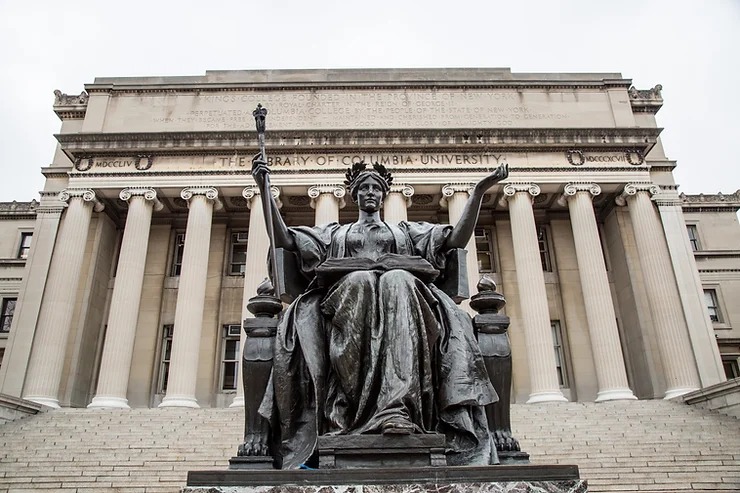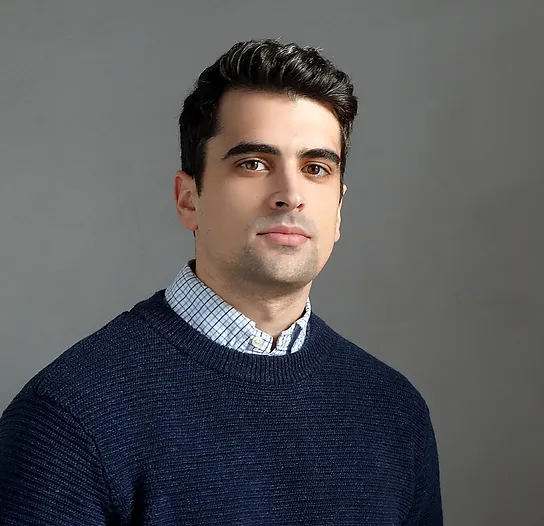Pierre is a leading college and graduate admissions consultant with extensive experience in education and entrepreneurship. His advice has been featured on Forbes.com, U.S. News, CNN Business, the Washington Post, ABC News, Business Insider, and more.

Welcome to the Columbia University supplemental essay prompts for the 2020-2021 application cycle! Here’s everything you need to know.
(You can refer to the Columbia University website if you want to see how exactly they’re presenting their essay prompts for this year.)
Please list the following (150 words or fewer for each question):
the titles of the required readings from academic courses that you enjoyed the most during secondary/high school;
This seems like a straightforward question, but the way you choose to answer it will say a great deal about you. Just keep this in mind. The tricky thing here is that you don’t have much space to justify your choices. So if you say that your favorite required readings were Hamlet and 1984, you’re not going to stand out from the pack much, even if you had a truly unique connection with these books that everyone in the country has (hopefully) read. Your strongest choices will be books that—even though someone made you read them—fit in with your narrative about who you are.
the titles of the books, essays, poetry, short stories or plays you read outside of academic courses that you enjoyed most during secondary/high school;
This question is a little more interesting and gives you more of an opportunity to show who you are. Again, it’s a straightforward question, but do your best to use this list to give admissions people a sense of your unique personality, and also show that you aren’t reading exactly what everyone else is—that you have your own individual tastes. The one thing you will definitely want to avoid here is listing titles that look like required reading, even if you were not required to read them. Again, Hamlet and 1984 won’t give you a lot of personality here.
This list should reinforce and expand on the personal narrative you are building throughout your college application. This doesn’t mean that if you’re a history buff all your favorite books have to be things like The Federalist Papers. Maybe you’re more of a Howard Zinn person, or a Walter Scott person for that matter. But if all your books are on or related to history you will risk looking a little one-dimensional. Let us know you’re also into horror fiction, feminism, old Toyota pickup maintenance, whatever.
the titles of the print or digital publications, websites, journals, podcasts or other content with which you regularly engage;
Same story: show your unique personality. If the only things you read are highly predictable publications like the New York Times or the Washington Post, at least tell them which sections you read.
and the movies, albums, shows, museums, lectures, events at your school or other entertainments that you enjoyed most during secondary/high school (in person or online).
More personality, more uniqueness. Don’t worry about trying to look cultured (if you have a genuine passion for opera or chamber music or lectures on Proust, that’s great, but don’t force it). Don’t worry about whether or not the admissions committee will share your interests. I recently had a conversation at an airport café with a young man from a small working-class town, and when Thunder Road came on, he confessed to me that he’d been to over 30 Bruce Springsteen concerts by the time he was 18. He showed me a video on YouTube of himself and a buddy singing with The Boss on stage in Newark when he was 17. I’ll never forget that guy. I don’t know if he ever applied to Columbia, but if he did, I sure hope he brought that anecdote up.
Columbia students take an active role in improving their community, whether in their residence hall, classes or throughout New York City. Their actions, small or large, work to positively impact the lives of others. Share one contribution that you have made to your family, school, friend group, or another community that surrounds you. (200 words or fewer).
This is a textbook example of a supplemental essay that asks about community. There’s a good chance that whatever you write here can be used in a few other places as well, for example for Yale’s “Reflect on your membership in a community. Why is your involvement important to you? How has it shaped you?…” Given that, it’s worth spending some time thinking about your most meaningful communities. One way to ask this is whom do you know and where from. You probably have some friends you know from classes, but might also have others from church on the weekends, jazz band in the morning, your dance studio, or any number of other things you do.
There are two important parts of community questions–how you have impacted the community and how it has left a mark on you. Ideally, your story will communicate both. Perhaps through making your dance studio more accessible to the differently abled, you discovered an interest in activism. Aim for the greatest magnitude of positive impact in both directions for the most effective essay, and provide as much evidence and as many numbers as you can smoothly. It’s easy to claim you made a change, but harder to back it up. Raising five thousand dollars for a local nonprofit to purchase 1000 meals for the homeless is more impressive than just saying you ran a fundraiser.
Why are you interested in attending Columbia University? (200 words of fewer) Please tell us what you value most about Columbia and why.
Hopefully you read all the prompts before you started your response to question 1. With this question, you want to make sure you’re not repeating yourself, and I’d advise you always to plan out all your responses before you start writing. This question is really two questions. What are you looking for in college? And what is it about Columbia that fits with those values? Give this one some thought and do your research into the particularities of Columbia carefully to see how the opportunities the school provides will meet your values. Try to go deep into the particularities of Columbia, beyond its Core Curriculum, for example, since you can bet almost everyone talks about this.
For applicants to Columbia College, please tell us what from your current and past experiences (either academic or personal) attracts you specifically to the areas of study that you previously noted in the application. (200 words or fewer)
I’m not a big fan of the “tell us what you’re going to major in” question, since by answering it, applicants risk reducing themselves to “prospective manager,” “prospective med school applicant” and so forth. But that’s not exactly what this question is asking. Here, you get to talk about yourself—your own experiences.
Ultimately this question is less about your major and more about you. This is your chance to write about your experiences and how they relate directly to what you want to study. It’s a good chance for you to describe your accomplishments. Remember to be matter-of-fact and avoid hyperbole. Quantify your accomplishments when you can.
For applicants to Columbia Engineering, please tell us what from your current and past experiences (either academic or personal) attracts you specifically to the areas of study that you previously noted in your application.
See above. Tell us how your experiences and accomplishments relate to what you want to study. Give us your personal reasons, and show us that you’re different from everyone else in your position.
As always, Ivy League college admissions consultants are here to help. Don’t hesitate to reach out.




